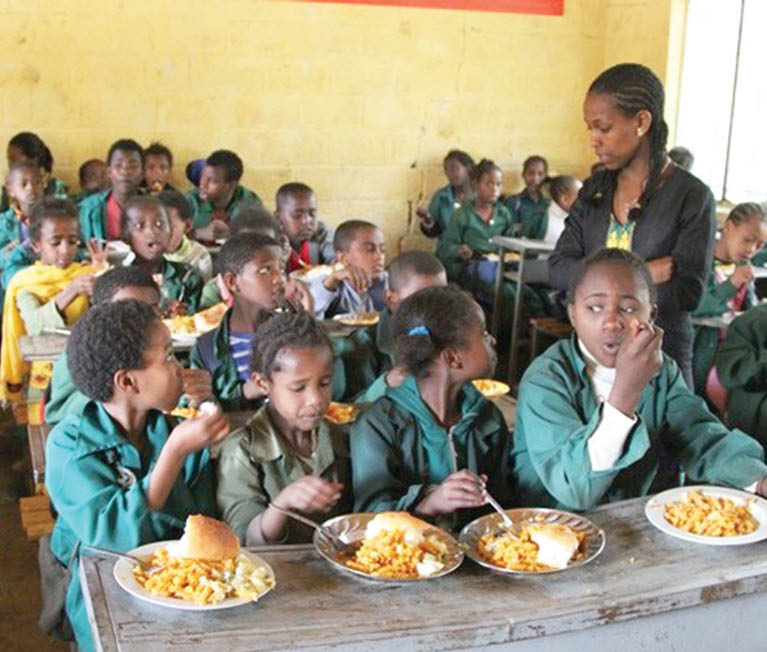B/Haram: ‘500,000 displaced kids have enrolled in school through feeding programme’
The federal government has said the school feeding programme has helped to reduce the number out-of-school children, especially among the internally displaced children in Borno State. The Borno State Programme Manager of the National Home Grown School Feeding Programme (NHGSFP), Fatima Abba Mali, stated this during a one-day training organised by the Ministry of Humanitarian […]

FILE PHOTO
The federal government has said the school feeding programme has helped to reduce the number out-of-school children, especially among the internally displaced children in Borno State.
The Borno State Programme Manager of the National Home Grown School Feeding Programme (NHGSFP), Fatima Abba Mali, stated this during a one-day training organised by the Ministry of Humanitarian Affairs, Disaster Management and Social Development with the theme: “Train Master Cook”, in Maiduguri.
- Insecurity: We need more military platforms, arms – Osinbajo
- Institute, Netflix select 2 Nigerians, 10 others for Episodic Lab, Devt. Executive Traineeship
She said, “One thing about the school feeding programme is that it has increased enrollment among IDP children and reduced out-of-school children, especially for primary one to three pupils. This little thing you are seeing helps parents send their children to school when they are sure that their wards would get fed in school. This programme has taken some burden off the parent,s especially the vulnerable and IDPs.
“We have 24 local governments enrolled on the school feeding programme already. The master cook is being trained in hygiene, nutrition values, financial planning and management they could be well equipped as related to their programme. That’s basically what we are doing.”
The Programme Consultant, Mohammed Alfa, noted that Borno State had peculiar challenges due to insurgency.
He said, “The school feeding programme has taken thousands of children off the streets. In Borno State, we used to have 109,000 pupils who were being fed, but the figure has rose after a head count was carried out by the National Bureau of Statistics (NBS) – the figure rose to 640,000 pupils.
“In the first phase we have captured more than 100,000 pupils, we still have more than 500,000 to be captured, so the exercise continues until we are done with capturing.”
